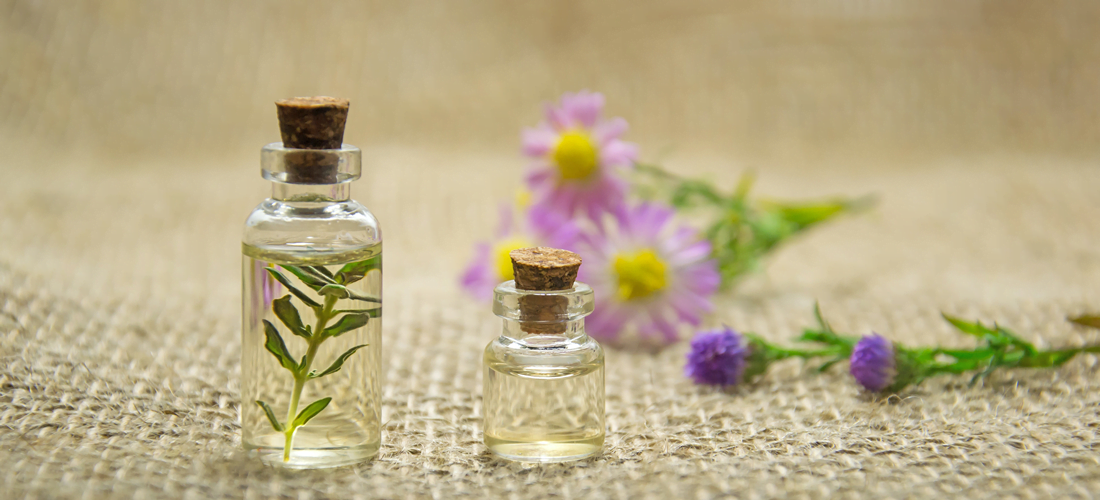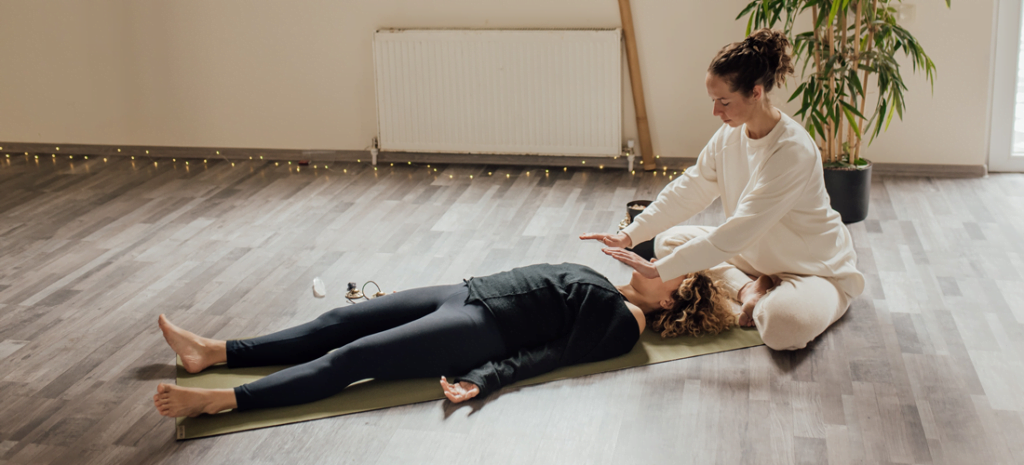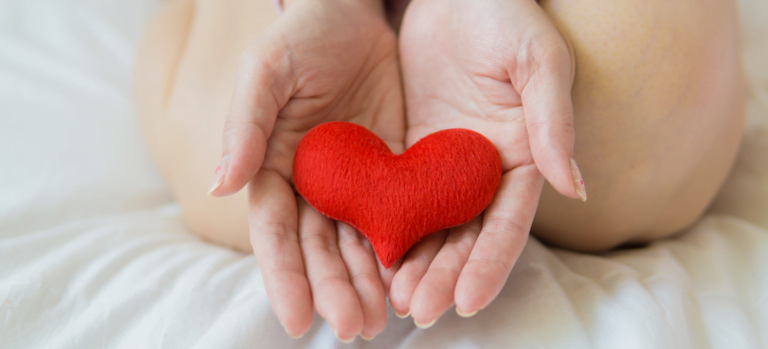Aromatherapy, at its core, is a holistic healing treatment that uses natural plant extracts to promote health and well-being. Otherwise referred to as essential oil therapy, aromatherapy is more than just pleasant scents. It taps into the healing essence of aromatic plants, helping to harmonize the body, mind, and spirit. The benefits of aromatherapy are surprisingly far-reaching. They include improved sleep quality, reduction in stress and anxiety, management of pain, and boosting of immunity. Truly, the power of aromatherapy lies in its ability to invoke positive sensations, restore balance, and rejuvenate the entire body.
Aromatherapy boasts a rich history that dates back thousands of years, spanning across various cultures globally. Ancient civilizations, such as the Egyptians, Greeks, Romans, and Chinese, recognized the therapeutic properties of aromatic plants and incorporated them into their everyday life.
These cultures extracted oils from these plants for use in religious ceremonies, to treat medical conditions, and for cosmetic purposes. Fast forward to the 20th century, French chemist Rene-Maurice Gattefosse coined the term “aromatherapy” after observing the healing effects of lavender oil on a burn.
Today, aromatherapy is recognized worldwide for its myriad benefits and holds significant cultural importance. It’s an alluring blend of tradition and innovation, and a testament to humanity’s enduring pursuit of natural wellness.
The Science Behind Aromatherapy
When it comes to aromatherapy, the power of scent cannot be underestimated. It’s rooted in the complex processes occurring in our brain when we inhale these essential oils. The aroma of the essential oils stimulates the olfactory system. This is the part of the brain connected to smell, including the nose and the brain.
As the molecules reach the brain, they affect the limbic system. This system is linked to emotions, heart rate, stress levels, memory, hormone balance, and breathing. This is why an aroma can provoke a strong emotional response or trigger a particular memory. It is also why it has such a powerful effect on our mood and well-being.
For instance, lavender is typically associated with relaxation and has been shown to help reduce stress and anxiety. On the other hand, citrus scents, like orange and lemon, are known to be uplifting. They can help alleviate symptoms of depression. Thus, the science behind aromatherapy lies in the direct influence of aromatic scents on the brain’s emotional center.
Benefits of Aromatherapy
Aromatherapy is a holistic approach to health and well-being that utilizes the scents of essential oils. Here are some of the key benefits of aromatherapy:
1. Stress and Anxiety Reduction
Aromatherapy is particularly useful in alleviating stress and anxiety. Essential oils such as lavender, chamomile, and frankincense have calming properties that help soothe the mind and body. Inhaling these scents triggers the release of serotonin and other mood-enhancing chemicals in the brain, promoting a sense of relaxation and peace.
A study by the Mayo Clinic even suggested that patients who were exposed to a lavender scent prior to a surgery exhibited lower levels of anxiety than those who weren’t. This stress and anxiety reduction can lead to improved sleep quality, decreased blood pressure, and overall enhanced well-being. Aromatherapy offers a natural, non-invasive way to manage stress and anxiety. This makes it an invaluable tool in today’s fast-paced, high-stress world.
2. Improved Mood and Emotional Health
Another noteworthy benefit of aromatherapy is its positive impact on mood and emotional health. Essential oils like bergamot, peppermint, and rosemary are renowned for their mood-lifting properties.
The mere inhalation of these captivating scents can stimulate the brain’s production of dopamine and serotonin. These neurotransmitters are associated with happiness and positivity. Moreover, aromatherapy can help alleviate emotional strain related to depression, grief, and other emotional traumas.
A study published in the American Journal of Hospice and Palliative Care revealed that aromatherapy could significantly reduce patients’ depression and anxiety levels. Thus, emphasizing the potent mood-enhancing capacity of aromatherapy. By incorporating aromatherapy into your daily routine, you can achieve a more balanced, positive emotional state. Aromatherapy can contribute substantially to your overall well-being and quality of life.
3. Enhanced Sleep Quality
Aromatherapy can play a pivotal role in enhancing sleep quality. Essential oils like lavender, chamomile, and ylang-ylang have long been celebrated for their sleep-inducing properties. These fragrances work by interacting with the brain’s limbic system, particularly the regions responsible for regulating sleep cycles.
The resultant effect is a calming, sedative impact. This encourages not only a swifter transition into sleep but also a deeper, more restorative sleep experience. People who struggle with sleep disorders such as insomnia may find solace in the soothing embrace of aromatherapy.
A research study published in the Journal of Alternative and Complementary Medicine demonstrated that participants who used aromatherapy experienced significant improvements in sleep quality. Incorporating aromatherapy into your bedtime routine could be a simple, natural way to combat sleep issues. Aromatherapy helps you wake up feeling rejuvenated and ready to seize the day.
4. Pain and Inflammation Management
Aromatherapy also stands as a powerful ally in pain and inflammation management. Essential oils such as peppermint, eucalyptus, and rosemary possess anti-inflammatory and analgesic properties that can help alleviate physical discomfort. When applied topically or diffused into the air, these oils can help soothe muscle aches and joint pain. They offer a natural, non-addictive alternative to traditional pain medications.
Notably, a study highlighted in the European Journal of Integrative Medicine found that aromatherapy significantly reduced patients’ perceptions of pain following surgery. Beyond acute pain relief, some essential oils can also help manage chronic pain conditions. Pain from conditions such as fibromyalgia and arthritis are eased by reducing inflammation and promoting relaxation.
Whether you’re contending with temporary discomfort or chronic pain, aromatherapy offers a promising, holistic approach to pain management.
5. Improved Focus and Concentration
Aromatherapy can also serve as a tremendous aid in enhancing focus and concentration. Certain essential oils, such as rosemary, lemon, and peppermint, are known for their invigorating effects and ability to stimulate mental clarity.
A study published in the International Journal of Neuroscience found that subjects exposed to rosemary oil demonstrated improved cognitive performance compared to a control group. Similarly, lemon essential oil is often used to promote mental alertness. Peppermint oil, on the other hand, is lauded for boosting energy and enhancing focus.
You can integrate these scents into your daily routine, whether by diffusing them in your workspace or applying them topically. You can harness the power of aromatherapy to maintain clearer thinking and stay focused on the task at hand.
6. Respiratory Health
Aromatherapy proves beneficial in promoting respiratory health as well. Essential oils such as eucalyptus, peppermint, and tea tree are renowned for their ability to clear up congestion, enhance breathing, and, by extension, support overall respiratory health.
Eucalyptus oil, for instance, is widely used in cough and cold remedies. Its expectorant properties help to clear excess mucus from the respiratory tract. Similarly, Peppermint oil contains menthol, which can soothe throat discomfort and act as a decongestant.
On the other hand, tea tree oil possesses potent antiviral and antimicrobial properties. It is a solid choice for bolstering the body’s defenses against respiratory ailments. By incorporating these oils into your aromatherapy routine, you can breathe easier and support your body’s natural defenses.
7. Immune System Support
Essential oils used in aromatherapy can also play a significant role in supporting the immune system. Many of these oils possess potent antibacterial and antiviral properties that can help safeguard the body from a variety of pathogens.
Clove, lemon, cinnamon, and oregano oils are particularly known for their strong antimicrobial properties. These oils can both directly combat harmful microorganisms and enhance the body’s natural immune defenses.
For instance, clove oil has a high concentration of eugenol, a compound with powerful antioxidant properties, which could potentially help the body to fend off harmful free radicals. Meanwhile, oregano oil is rich in carvacrol, a substance known for its antimicrobial properties.
With regular use, these oils can serve as an effective supplement to your immune health regimen. They can enhance your body’s innate ability to resist illness. By incorporating aromatherapy into your daily routine, you are not only indulging your senses but also proactively taking steps towards a healthier, more resilient you.
8. Skin and Hair Care
Aromatherapy also extends its benefits to the realm of skin and hair care. Various essential oils carry properties that can nourish, moisturize, and rejuvenate your skin and hair. For example, jojoba oil and argan oil are known for their deeply hydrating qualities. This makes them ideal for combating dry skin and hair. They are rich in essential fatty acids and antioxidants. Elements that can help repair damaged hair and skin, promoting a healthy glow.
Lavender oil, with its soothing properties, assists in relaxation. It also aids in healing skin irritations and reducing inflammation. Similarly, tea tree oil works wonders in treating acne due to its antibacterial properties. Chamomile oil, renowned for its calming effects, also nourishes and brightens the skin, giving it a radiant, youthful appearance.
Incorporating these essential oils into your skincare and haircare routine through aromatherapy can lead to significant improvements over time. So, along with nurturing your senses and bolstering your health, aromatherapy could also be your passport to enhanced beauty and self-confidence.
9. Holistic Healing
Aromatherapy is not just about engaging the senses or enhancing beauty; it takes a comprehensive approach towards healing and wellness by addressing the health of the body, mind, and spirit. This approach is often referred to as “holistic healing”. The essential oils used in aromatherapy can help stimulate the body’s natural ability to heal, thereby promoting overall wellness.
For instance, peppermint oil can soothe digestive issues, while eucalyptus oil can provide relief from respiratory ailments. On a mental level, oils like lavender and chamomile can help reduce stress and anxiety, fostering a sense of inner peace. Spiritually, aromas like frankincense and sandalwood have been used for centuries in meditative practices to promote mindfulness and deeper connection with one’s self.
Through these multifaceted benefits, aromatherapy supports holistic healing by nurturing the interconnection between physical health, emotional well-being, and spiritual balance. It’s not just a tool for symptom management but a pathway to achieving a harmonious state of well-being. With aromatherapy, you’re not just treating a problem; you’re nurturing your entire being.
10. Allergies and Digestive Health
Aromatherapy shines as a natural, non-invasive method for managing allergies and improving digestive health. Allergies are common and can cause a range of symptoms, from a runny nose to itchy eyes and skin rashes. Essential oils like peppermint and eucalyptus have been shown to alleviate these symptoms by reducing inflammation and clearing respiratory congestion.
Digestive health, on the other hand, is a broad domain where aromatherapy also offers several benefits. Essential oils like ginger and peppermint are known to aid digestion and relieve nausea. For instance, a few drops of peppermint oil in your tea or diffused in the room can work wonders to soothe an upset stomach or prevent motion sickness.
It’s important to note that everyone may react differently to essential oils, so always do a patch test before applying oils directly to your skin, and consult a healthcare or aromatherapy professional if you’re new to using essential oils. By including aromatherapy in your wellness journey, you are taking a step towards managing allergies and promoting digestive health in a holistic and natural way.
11. Enhanced Sensory Experience
Aromatherapy has a profound effect on our senses, fostering an enhanced sensory experience that can transform our surroundings and influence our mood. Essential oils, the heart of aromatherapy, are derived from natural plant extracts, each housing its unique aroma with the potential to evoke a myriad of responses in our senses.
Imagine walking into a room filled with the soothing scent of lavender – it can instantly transport your mind to a tranquil field of lavender blossoms, promoting a sense of calm and relaxation. On the other hand, the invigorating aroma of lemon or peppermint oil can stimulate your senses, making you feel more alert and focused.
The aromatic properties of these oils can greatly improve the ambiance of your living or workspace, making it more pleasant and inviting. Therefore, aromatherapy not only brings therapeutic health benefits but also enhances our sensory experience, creating a nurturing environment that aligns with our emotional and psychological needs.
12. Pain-free Menstrual Cycles
Aromatherapy offers an effective, non-invasive solution to managing menstrual pain, making it an appealing alternative for women who experience discomfort during their menstrual cycles. Essential oils like clary sage, lavender, and rose are known for their antispasmodic and anti-inflammatory properties, which can help alleviate menstrual cramps and lower back pain. When massaged into the lower abdomen or diffused in the air, these oils can help to relax the muscles and create a sense of calm.
In addition to physical discomfort, many women also experience emotional changes such as mood swings, irritability, or anxiety during their menstrual cycle. Here too, aromatherapy proves to be beneficial. Diffusing oils like chamomile or ylang-ylang can provide a soothing atmosphere, helping to balance mood fluctuations and promote emotional wellbeing.
In essence, by incorporating aromatherapy into your self-care routine, you can combat the physical and emotional challenges that often accompany menstrual cycles, offering a more comfortable and pain-free experience.
It’s important to note that while aromatherapy offers numerous benefits, it should be used with care and under the guidance of a certified aromatherapist, especially when applied topically or ingested. Different individuals may respond differently to aromatherapy, so it’s essential to find the right essential oils and methods that work best for your specific needs and preferences.
Safety Precautions and Best Practices
Dilution guidelines for essential oils
When using essential oils, dilution is crucial for safety and effectiveness. Undiluted essential oils are highly potent and can cause skin irritation or sensitivity. As a general rule, essential oils should be diluted with a carrier oil like jojoba, almond, or coconut oil. The standard dilution ratio for adults is 2% — which equates to approximately 12 drops of essential oil for every one ounce of carrier oil. For sensitive skin, elderly, children or for facial application, a 1% dilution is recommended, meaning 6 drops of essential oil per one ounce of carrier oil.
Moreover, certain essential oils like cinnamon, clove, or lemongrass are ‘hot’ oils and should be diluted even more, regardless of the individual’s age or health. Always perform a patch test before applying a new essential oil to your skin. And remember, less is more. Using more of essential oil doesn’t necessarily increase its benefits, but it can certainly increase the risk of adverse reactions.
Lastly, always store your diluted oils in dark, glass containers to protect them from light degradation. Following these guidelines will ensure you enjoy the benefits of aromatherapy safely and effectively.
Patch testing and allergen considerations
Even with proper dilution, some individuals may develop an allergic reaction to certain essential oils. Therefore, patch testing is a crucial step before fully incorporating an essential oil into your routine. To perform a patch test, apply a small amount of the diluted essential oil to a patch of skin on your inner forearm. Wait for 24 hours to observe any reactions. If you experience any itching, redness, or swelling, it indicates that you may be allergic to the oil. In such cases, discontinue use immediately.
Additionally, bear in mind that allergies can develop over time, even with oils that you’ve been using for a while. Always listen to your body and discontinue use if you notice any discomfort, itching, or skin irritation.
For people with existing allergies, especially those with a history of severe reactions, it’s advisable to consult a healthcare provider or a certified aromatherapist before introducing essential oils into your regimen. This is especially important for people with respiratory conditions, as certain oils can trigger asthma attacks or respiratory distress.
Remember, safety is paramount when it comes to enjoying the benefits of aromatherapy. By following these precautions and acknowledging allergen considerations, you can safely harness the power of essential oils and experience the myriad benefits of aromatherapy.
Safe use around children and pets
Extra caution should be exercised when using essential oils around children and pets, as they are more sensitive to the effects of the oils. It is crucial to keep your essential oils out of the reach of children, and even when diffusing, ensure the room is well ventilated and the concentration of oils is minimal. Some oils, like eucalyptus and peppermint, can cause respiratory issues in young children and should be avoided.
When it comes to pets, many essential oils that are safe for human use can be toxic for animals. Cats, in particular, lack the enzyme necessary to metabolize and eliminate certain compounds found in essential oils, which can lead to severe health issues. Dogs, while more resilient than cats, can also react negatively to some essential oils. Always consult with a veterinarian before introducing essential oils into an environment shared with pets.
While aromatherapy offers numerous benefits, it’s important to be mindful of the potential risks to children and pets. By taking these precautions, you can ensure a safe and beneficial aromatherapy experience for everyone in your household.
Consulting with a certified aromatherapist
Consulting with a certified aromatherapist is a wise step to fully unlock the benefits of aromatherapy. They possess the necessary knowledge and expertise to suggest suitable oils and blends tailored to an individual’s needs and health conditions.
An experienced aromatherapist can provide safe, effective, and personalized aromatherapy recommendations, whether it’s to alleviate stress, boost mood, or promote sleep. Additionally, they can guide you on the safe usage and optimal methods of application — whether topical, inhalation, or diffused — ensuring you are using the oils correctly, thereby maximizing their benefits.
Keep in mind, aromatherapy is a complement to traditional medical treatments and should not be considered a substitute for seeking medical advice when needed. Always consult with a healthcare professional in tandem with an aromatherapist, particularly if you have underlying health conditions.
Conclusion
The multifaceted benefits of aromatherapy extend beyond simple relaxation. With its capacity to alleviate stress, enhance mood, and promote quality sleep, it contributes significantly to holistic well-being.
By applying essential oils topically, inhaling them, or using them in a diffuser, you can tap into nature’s therapeutic offerings. Consulting with a certified aromatherapist can help tailor these offerings to your unique needs, ensuring a safe and effective aromatherapy experience.
However, it’s essential to remember that aromatherapy complements traditional healthcare, not replaces it. Always consult medical professionals for health issues, using aromatherapy as a supplementary tool to support overall wellness.








